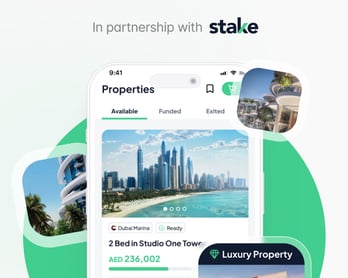Most startups need to raise capital for their business at some point or other. There are many ways to fundraise today, and choosing the right financing approach is critical to your startup’s success. If one of your fundraising approaches is securities crowdfunding or equity funding (i.e. where you raise funds in return for giving away a stake in your company), here are some easy ways to start finding investors:
Friends and family: This is your “inner circle” - people who know you and trust you well enough over many years. Although you can approach friends and family at any stage of your venture, often the most effective time to tap this network is when your venture is either at the idea or early prototype stage. This is the moment of greatest risk. Investors who don’t know you may not wish to get involved at this stage without proof of traction, but friends and family can place a vote of confidence in your ability to get a new venture off the ground.
Peer-to-peer fundraising: The second advantage of raising funds through friends and family is being able to tap their networks, eg asking these close contacts to share your fundraising opportunity with their connections. There is nothing like a potential new investor hearing, “hey, I’m investing in my friend’s venture because of xyz...how do you feel about investing too?”
-
Email campaigns: This might sound like an old-fashioned approach but it can sometimes be an effective strategy when planned carefully and when it’s part of a broader fundraising initiative. It can be especially effective if you have already raised a significant amount of your round, ideally 50% of your target or more, and you’re now trying to close the remaining target amount. You do need to research your target audience very well: remember that email can be intrusive, and that sending unsolicited email (eg without opt-in) can be illegal.
Short videos can also be effective. You may also wish to include endorsements from other investors, and remember to include your closing date.If you have permission to send a targeted email, make sure your audience has a reason for opening the email and then KEEP IT SHORT. Social & industry events: Inviting your network to a privately-organized social event can provide you with an intimate opportunity to find investors. This is obviously difficult to do in the time of COVID-19, but perhaps a virtual event will work. If in person, events are typically best done as intimate and relatively informal gatherings, and can be especially effective if your team, stakeholders, and/or other investors are speaking. If you’re organizing an event, make sure that it's in a convenient location, and that you offer some form of refreshments. Participating at an industry event can also be a great way of generating credibility, especially if you manage to secure a speaking spot. Sometimes the mission and vision of a founder can get lost in the online noise, but sharing that vision on stage can be a great way to build connection and invite others to share your journey by asking for support.
Rewards are now widely regarded as a mainstream incentive within investor circles, and can sometimes make the difference between an investor investing or not. Rewards can include free products, services, or memberships. They can also be tiered, in line with the amount invested. Often, rewards are used as a strategy for speeding up closure of an investment round by offering additional incentives if somebody invests before a certain date, or increases the size of their investment. Remember though that rewards may be considered a tax-deductible benefit, so make sure you liaise with your financial advisor about the tax implications for any investor.
Pitch contests: Startup competitions are often overlooked by founders so they could be a great opportunity if you find one that feels like a true fit. Not only do many competitions have large monetary prizes but they can also bring prestige, awareness, and validation for your company that can be used to attract other equity investors. In addition, some pitch contests are monetary only - meaning there’s no obligation to give equity in your company away.
Grant funding: Often, foundations, government bodies, or larger companies encourage the growth of certain projects or industries. Or, they wish to stimulate economic growth in a certain geographical area. Finding out whether you qualify for any of these grants at an early stage is worth some research since often there’s no need to give away equity in your company. Some grants carry certain criteria such as a match-funding requirement, meaning the grant is only available if you can prove you have raised an equal amount from investors. Other grants are dressed up as convertible loan agreements, which means the loan could convert into equity. However, in almost all cases, these grants are very startup friendly and designed to support the founding team.
-
Social media outreach: Similar to email outreach, social media outreach can be a very effective campaign strategy when used in combination with other channels and when you’re targeting the right individuals. There are laws against “general solicitation,” e.g. announcing that you are fundraising and asking for investment, unless you are running a Regulation D (506(c)) campaign, so you’ll want to be careful how you approach social media. If you are running a Regulation D (506(c)), targeting investment groups on Twitter and LinkedIn, and tweeting and posting updates about your investment campaign, particularly when you have already managed to raise a substantial amount, can be an extremely powerful strategy. People love endorsements, and they love being part of a raise that is doing well, and updates make it easy for people to share with others. On Facebook, however, caution is advised.
However, a quick courtesy note to a genuine friend via the messaging app requesting a follow-up call to chat about a potential investment might work. Always consult with your attorney before engaging in “general solicitation” i.e. public fundraising.Do not confuse “friends and family” with “Friends” on Facebook. If you have friended someone on Facebook, but you’re not actually close friends, then people might take issue with you asking for money and it might be considered inappropriate. Ask your business school or alma mater. Many educational establishments, in particular business schools, have angel networks or are associated with incubator and accelerator programs. Reach out to your alma mater to see what programs they run or if there are any alumni who might be able to help you with your raise. Likewise, check to see if any of your friends and colleagues are graduates of a business school with an accelerator program or angel network and ask them to do some introductions on your behalf.
Crowdfunding has become a very popular method of fundraising over the last few years and has the advantage that you can raise a potentially large sum of money from a broader base of smaller investors. These small investment amounts make investing more attractive to investors with budgets. Learn more about how does crowdfunding work.
However, since crowdfunding has become a mainstream form of fundraising, the crowdfunding platforms have become increasingly selective at whom they take on board. There’s often no guarantee that you’ll be accepted, and sometimes you need to show that you’ve already raised a substantial portion of your target before you’re able to launch your campaign online. Learn more about raising on Republic.Accelerators and incubators: Not all accelerators and incubators are tied to an educational establishment, and many are privately run. Research accelerators in your industry or location to see which programs are best for your company and when the next program starts. Remember that accelerators and incubators differ in terms of size, experience, network access, and of course the level of funding available. Make sure you do your research and ensure that mentors and support staff have genuine experience with startups.
Empower lead investors to help you fundraise: Most investors know other investors; if you’re lucky enough to have a high-profile lead investor backing you, this can provide huge leverage and credibility. Asking a lead investor who has backed you to help you close the round, and making it easy for them to do so, is worthwhile.
Make press and media appearances: Leverage public events, product launches, or other opportunities to raise your profile. Consider writing articles or recording podcasts to build buzz around your company.
Engage influencers: Influencers can be essential in today’s world. You may already have influencers in your network who can help spread the word about your company. All it takes is one tweet or Instagram post to potentially reach millions, and then you can leverage that attention into fundraising interest in your company.
Read more about how to find investors for your business.
Great opportunities on Republic
Republic offers innovative fundraising tools to help you succeed. We’re experts on everything mentioned above, from crowdfunding, to advertising, to engaging angel investors. We founded the platform to help qualified startups find investors and meet fundraising goals. A company that raises on Republic is carefully vetted, and then guided through the process by our experienced team. Once your campaign is live, you can promote your Republic campaign across your company’s social channels, networks, and at events. We’ll also connect you with our growing investor community. It’s a straightforward solution for startups looking to raise early capital from the crowd.
Remember, when soliciting investments, always consult your attorney as in the United States there are specific rules regarding the offer and sale of securities on a state by state basis as well as on a federal level, monitored and enforced by the Securities and Exchange Commission (SEC).
This educational article is provided by Republic to help its users understand this area of the market, it should not be construed as investment advice as it is impersonal, disinterested and was produced by Republic for Republic’s users, without remuneration received or expected.
Top 14 fundraising ideas for your startup



 Oops! We couldn’t find any results...
Oops! We couldn’t find any results...








The discussion will appear here.